Zero to One
This book is composed of Peter Thiel’s advice on startups with different take away such as the DO’s and DON’TS of startups, what to focus on when building a startup, insight of building a billion-dollar startup that stands the test of time and many more. He gave an illustration of the first team he built which is known as the “PayPal Mafia” who have gone out to help each other start and invest in successful tech companies. They sold PayPal to eBay in 2002 for $1.5billion. Ever since then:
- Elon Musk has founded SpaceX and co-founded Tesla Motors
- Reid Hoffman co-founded LinkedIn
- Steve Chen, Chad Hurley, and Jawed Karim together founded YouTube
- Jeremy Stoppelman and Russel Simmons founded Yelp
- David Sacks co-founded Yammer
- and Thiel himself co-founded Palantir
- And today, all these seven companies are worth over $1billion.
This book begins with Peter’s favorite interview question which is, “What important truth do very few people agree with you on?” He justifies this question by saying that “brilliant thinking is rare, but courage is even shorter than genius”. He further says that globalization without new technology in a world of scarce resources is unsustainable. Because the truth is that technology matters more in globalization. The best way to create wealth is not by spreading old ways but by innovation. And to introduce innovation, we have startups. He points out that competitive market destroys profit. He said, “if you can recognize competition as a destructive force instead of a sign of value, you are saner than most.” To get more capital, you need to be a monopolist and escape competition. You may think monopolies are bad but thinking of it in a world where it’s possible to invent new things, it brings about more creativity and innovations. Creative monopolists add new categories to the categories of products available, thereby giving customers more varieties to choose from.
What makes a monopoly durable? What does a company with large cash flows far into the future look like? There are four key characteristics to describe:
- Proprietary technology
- Network effects (aka virility)
- Simple scalability
- Branding
Peter’s next favorite question is “What valuable company is nobody building?” You get a valuable company when you create value and capture value. If you want to create and capture value as an entrepreneur, don’t build an undifferentiated commodity business. The author makes the difference between a perfectly competitive market and a monopoly and explains how both companies are trying to disguise themselves. The author takes us through various schools of thought of startups in each chapter of his book. Some of which are: the ideology of competition which explains why people compete, secrets which reveal why people are not looking for secrets and why companies need to stop believing in secrets, the mechanics of mafia and so on.
He concluded by asking the question: Stagnation or Singularity? It all depends on us. Our task today is to find singular ways to create new things that will make the future transpire from Zero to One. The critical step is to think for yourself, see the world anew, afresh and as strange as it was to the ancients who saw it first. Then we can recreate it and preserve it for the future. Whatever decision you make today, determines the success we experience tomorrow. So think critically and take action not by acting upon a created solution but by searching out a unique problem and proffering a solution to it.
THE BIG THREE – KEY POINTS
Key point #1: The author encourages monopolization other than perfect competition
Key point #2: Leverage on the power of exponential growth
Key point #3: Don’t just invent a product; invent an efficient way of selling it.
One Last Thing
“The best entrepreneurs know this: every great business is built around a secret that’s hidden from the outside. A great company is a conspiracy to change the world; when you share your secret, the recipient becomes a fellow conspirator.”
― Zero to One: Notes on Startups, or How to Build the Future
